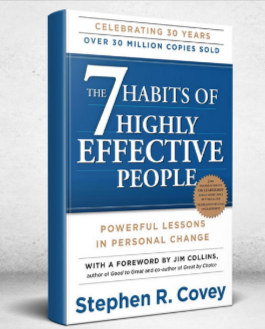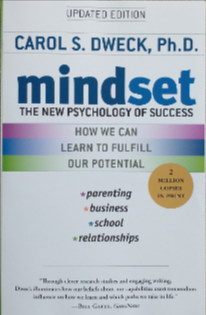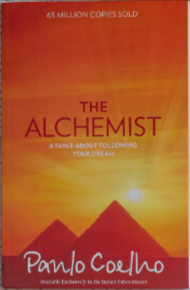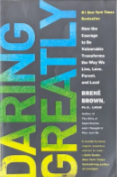Discover how reading can help you grow as a person. Learn about the benefits of reading for personal growth, emotional intelligence, and self-improvement. Get tips and recommendations for making reading a habit.
 |
| Personal Growth |
Why Personal Growth Matters -
Personal growth is an ongoing process of self-improvement and development, both in our personal and professional lives. It involves setting goals, taking action to achieve them, and continuously learning from our experiences. While some may view personal growth as a luxury or a nice-to-have, it is actually a critical aspect of our well-being and success. Here are several reasons why personal growth matters.
First and foremost, personal growth allows us to become more self-aware. When we take the time to reflect on our thoughts, feelings, and behaviors, we gain a better understanding of ourselves and our motivations. This self-awareness can help us identify areas where we want to improve and develop a plan to achieve our goals.
Secondly, personal growth helps us build resilience. Life is full of ups and downs, and personal growth teaches us to embrace challenges as opportunities for growth rather than setbacks. By learning from our failures and setbacks, we become more resilient and better equipped to handle future challenges.
Thirdly, personal growth allows us to expand our skillset and knowledge base. By seeking out new experiences and learning opportunities, we can develop new skills and knowledge that will benefit us both personally and professionally. This can lead to increased job satisfaction, better job opportunities, and a more fulfilling life overall.
In addition to these benefits, personal growth can also improve our relationships with others. When we work on ourselves, we become more empathetic, patient, and understanding of others. We are also better able to communicate our thoughts and feelings, which can lead to stronger and more fulfilling relationships.
Personal growth is not just a luxury but a critical aspect of our well-being and success. By becoming more self-aware, building resilience, expanding our skillset, and improving our relationships with others, we can lead happier, more fulfilling lives. So, if you haven't already, make personal growth a priority and watch as your life transforms before your very eyes.
Top 10 Must-Read Books for Personal Growth -
1. The 7 Habits of Highly Effective People
The book is structured around seven habits that Covey believes are essential for achieving effectiveness in any area of life. These habits are:
➣Be proactive: Take responsibility for your own life and don't wait for others to make things happen.
➣Begin with the end in mind: Have a clear vision of what you want to achieve and plan accordingly.
➣Put first things first: Prioritize your activities based on what is most important and manage your time effectively.
➣Think win-win: Seek solutions that benefit both parties in any situation.
➣Seek first to understand, then to be understood: Listen to others and try to see things from their perspective before expressing your own views.
➣Synergize: Work collaboratively with others to achieve common goals.
➣Sharpen the saw: Continually improve yourself through learning, self-reflection, and self-care.
The emphasis of the book lies in the significance of crafting a personal mission statement and ensuring that one's actions are in harmony with that mission. Covey also discusses the concept of "paradigms," which are the underlying assumptions and beliefs that shape our behavior. He argues that by changing our paradigms, we can change our behavior and achieve greater effectiveness.
Overall, "The 7 Habits of Highly Effective People" offers practical advice and strategies for personal and professional development. It encourages readers to take responsibility for their own lives, to think positively, and to work collaboratively with others. It is a timeless classic that continues to inspire and guide readers toward greater success and fulfillment.
2. Mindset: The New Psychology of Success
Dweck proposed the existence of two mindsets: the fixed mindset and the growth mindset. A fixed mindset is characterized by the belief that one's skills and intellect are inherent traits that cannot be enhanced or expanded. Conversely, a growth mindset is founded on the belief that one's abilities and intelligence can be cultivated and improved by exerting effort, committing to personal development, and being receptive to new learning opportunities.
Dweck argues that individuals with a growth mindset tend to be more successful in life because they are more willing to take risks, embrace challenges, and learn from their mistakes. They are also more resilient and better able to bounce back from setbacks.
In contrast, individuals with a fixed mindset tend to shy away from challenges and view failures as a reflection of their innate abilities. Individuals who encounter obstacles may be more inclined to abandon their endeavors.
According to Dweck's research, individuals can cultivate a growth mindset through intentional effort and consistent practice. This involves embracing challenges, seeking out new experiences, and being open to feedback and criticism.
Overall, "Mindset: The New Psychology of Success" is a thought-provoking book that challenges readers to examine their own mindset and consider how it may affect their approach to learning, growth, and success. Embracing a growth mindset can enable people to realize their complete potential and attain greater accomplishments in every aspect of their lives.
3. The Power of Now
The Power of Now is a book written by spiritual teacher Eckhart Tolle that explores the idea of living in the present moment. The book argues that our minds are often consumed with thoughts about the past or future, which can lead to stress and anxiety, and that true happiness and fulfillment can only be found by focusing on the present.
One of the key teachings of The Power of Now is the concept of the "pain body." According to Tolle, the pain body is a collection of emotional pain that we carry with us from past experiences. This pain can be triggered by current events, leading to negative emotions and behaviors. Tolle argues that by becoming aware of the pain body and learning to detach from it, we can break free from negative patterns of behavior and experience greater peace and happiness in the present.
The book also emphasizes the importance of mindfulness and meditation as tools for staying present. Tolle encourages readers to observe their thoughts and emotions without judgment and to cultivate a sense of inner stillness and awareness.
Overall, The Power of Now offers a compelling argument for the importance of living in the present moment and finding inner peace. Its teachings have resonated with readers around the world, making it a beloved classic in the field of spiritual self-help.
4. The Alchemist
Paulo Coelho, an author from Brazil, wrote a book called "The Alchemist". The book was first published in Portuguese in 1988 and has since been translated into numerous languages and has become an international bestseller.
The story follows a shepherd boy named Santiago, who dreams of traveling the world in search of treasure. He leaves his home in Spain and embarks on a journey to Egypt, hoping to find a treasure buried in the Pyramids.
Along the way, Santiago meets several people who teach him important life lessons. He meets a gypsy woman who interprets his dreams, an old man who encourages him to follow his heart, and a beautiful woman who becomes his love interest.
Throughout the book, Santiago learns the importance of following his dreams and listening to his heart. He discovers that the treasure he has been seeking was within him all along and that the journey he took to find it was just as important as the treasure itself.
"The Alchemist" is a beautifully written novel that explores the themes of self-discovery, destiny, and the power of following one's dreams. It has inspired millions of readers around the world to pursue their own dreams and never give up on what they truly desire.
5. Man's Search for Meaning
"Man's Search for Meaning" is a book written by Viktor Frankl, a Holocaust survivor, and psychiatrist. The book describes his experiences in concentration camps during World War II, and his observations on the nature of human suffering and the search for meaning in life.
The first part of the book focuses on Frankl's experiences in the concentration camps. He describes the brutal conditions, the daily struggle for survival, and the psychological effects of the dehumanizing treatment he and his fellow prisoners endured. Despite the horrors he faced, Frankl found that those who were able to find meaning in their suffering were more likely to survive.
The second part of the book outlines Frankl's philosophy of logotherapy, which emphasizes the importance of finding meaning in life. According to Frankl, humans are motivated by a desire to find meaning and purpose in their lives, and this search for meaning can help us to overcome even the most difficult challenges.
Frankl's philosophy of logotherapy has been influential in the field of psychology, particularly in the treatment of depression, anxiety, and other mental health conditions. By helping people to identify and pursue their own unique sense of meaning and purpose, logotherapy can provide a sense of hope and direction that can help to alleviate feelings of despair and hopelessness.
Overall, "Man's Search for Meaning" is a powerful testament to the human spirit and the resilience of the human soul. It reminds us that even in the darkest of times, we have the power to find meaning and purpose in our lives and that this search can provide us with the strength and courage we need to overcome even the most difficult challenges.
6. The Art of Possibility
The Art of Possibility is a transformative book written by Rosamund Stone Zander and Benjamin Zander. It is a powerful exploration of the concept of possibility and how it can transform our lives and the world around us.
The book is divided into twelve chapters, each of which explores a different aspect of the art of possibility. The authors use stories, examples, and personal experiences to illustrate their points and provide practical advice for readers.
One of the key messages of the book is that we can choose to see the world differently, one that is full of possibilities rather than limitations. By shifting our mindset and embracing possibility, we can unlock our creativity, overcome obstacles, and achieve our goals.
Another important theme of the book is the idea of connection and collaboration. The authors emphasize the importance of building relationships and working together to achieve our shared goals. They argue that by focusing on what we can create together, rather than what we can achieve individually, we can achieve far more than we ever thought possible.
The Art of Possibility is not just a book about personal transformation, but also about social transformation. The authors argue that by embracing possibility and working together, we can create a more just, equitable, and sustainable world for all.
Overall, The Art of Possibility is a thought-provoking and inspiring book that challenges readers to rethink their assumptions and embrace the power of possibility. It is a must-read for anyone looking to transform their lives and make a positive impact on the world.
7. The Four Agreements
The Four Agreements is a book written by Don Miguel Ruiz that presents four principles for personal transformation and spiritual growth. These agreements are:
1. Be impeccable with your word.
2. Don't take anything personally.
3. Don't make assumptions.
4. Always do your best.
Being impeccable with your word means speaking with integrity, avoiding gossip, and using your words to spread positivity and kindness. This agreement teaches us to use our words in a way that empowers ourselves and others, rather than using them to harm or hurt others.
The second agreement, don't take anything personally, encourages us to not let the opinions or actions of others affect us. This agreement teaches us that other people's actions are not about us, but rather a reflection of their own beliefs and experiences. By not taking things personally, we can avoid unnecessary emotional pain and free ourselves from the burden of others' opinions.
The third agreement emphasizes the importance of avoiding assumptions by encouraging us to inquire and clarify rather than presuming to comprehend the thoughts or emotions of others. Making assumptions can lead to misunderstandings and conflicts, whereas seeking clarity and understanding can lead to healthier and more productive relationships.
Finally, the fourth agreement, always do your best, encourages us to do our best in everything we do, regardless of the outcome. This agreement teaches us to focus on the effort we put in, rather than the result, and to strive for continuous improvement in all aspects of our lives.
Overall, The Four Agreements provides a framework for living a more meaningful and fulfilling life, by promoting self-awareness, personal responsibility, and positive action. By adopting these agreements, we can improve our relationships, enhance our communication skills, and ultimately, achieve greater inner peace and happiness.
8. Daring Greatly
Daring Greatly is a book written by Brené Brown that explores the concept of vulnerability and how it can be harnessed as a source of strength and connection. Brown, a renowned researcher, and storyteller draw on her extensive research and personal experiences to present a compelling argument for why vulnerability is essential for true human connection and personal growth.
At the heart of Daring Greatly is the idea that vulnerability is not weakness, but rather the key to living a wholehearted life. Brown argues that by embracing vulnerability and being willing to take risks, we can experience deeper connections with others, greater creativity and innovation, and a more fulfilling sense of purpose.
One of the key insights in the book is the importance of cultivating a sense of shame resilience. Brown argues that shame is a universal human emotion that can be incredibly destructive, leading to feelings of disconnection, self-doubt, and worthlessness. However, by developing the ability to recognize shame when it arises, and by reframing our experiences in more compassionate and empathetic terms, we can build a sense of shame resilience that allows us to overcome shame and move forward more positively and confidently.
Throughout the book, Brown weaves together personal anecdotes, scientific research, and practical advice to provide readers with a roadmap for how to embrace vulnerability and live a more wholehearted life. Whether you're struggling with shame, looking to cultivate deeper connections with others, or simply seeking to live a more authentic and fulfilling life, Daring Greatly is a must-read book that will leave you feeling inspired, empowered, and ready to take on whatever challenges come your way.
9. The Road Less Traveled
"The Road Less Traveled" is a book written by a psychiatrist and author M. Scott Peck. It was first published in 1978 and has since become a classic in the field of self-help and personal development.
The book is divided into four parts and explores the journey toward spiritual growth and self-realization. Peck argues that to grow and become fulfilled individuals, we must be willing to take the road less traveled. This means that we must be willing to face our fears, confront our weaknesses, and take risks to reach our full potential.
Peck emphasizes the importance of discipline, commitment, and hard work in achieving our goals. He stresses that spiritual growth is a continuous process and that it requires dedication and effort. He also argues that personal growth involves a willingness to confront and work through our emotional and psychological issues, including our fears, anxieties, and insecurities.
One of the key themes in the book is the idea of delayed gratification. Peck argues that to achieve our goals and find fulfillment, we must be willing to sacrifice short-term pleasures and gratification in favor of long-term growth and satisfaction. This means that we must be willing to work hard, make difficult choices, and sometimes experience discomfort and pain in pursuing our goals.
Overall, "The Road Less Traveled" offers a compelling and inspiring perspective on personal growth and self-realization. It challenges readers to take a hard look at themselves and to make the necessary changes to achieve their full potential. While the journey may be difficult and at times painful, Peck argues that the rewards are well worth it in the end.
10. The Happiness Project
The Happiness Project is a book written by Gretchen Rubin, which chronicles her year-long journey to increase her happiness levels. In the book, Rubin explores various strategies and techniques for improving happiness and well-being.
The project began when Rubin realized that, despite having a successful career, a loving family, and comfortable life, she still felt a sense of dissatisfaction and a lack of fulfillment. She decided to dedicate a year of her life to focusing on different areas of her life and making intentional changes to increase her happiness.
Rubin organized her project around a set of overarching themes, such as boosting energy, cultivating relationships, and pursuing passions. Within each theme, she set specific goals and action steps to help her make progress. For example, on the theme of boosting energy, she focused on getting more sleep, exercising regularly, and cutting back on caffeine.
Throughout the book, Rubin shares her experiences and insights, as well as research and advice from experts in various fields. She also includes practical tips and exercises for readers to try out in their own lives.
One of the key takeaways from The Happiness Project is the importance of being intentional and proactive about our own happiness. Rather than waiting for external circumstances to change or for happiness to just happen, we can take concrete steps to cultivate more joy and satisfaction in our lives.
Overall, The Happiness Project offers an engaging and insightful exploration of the many facets of happiness and serves as a useful guide for anyone looking to improve their own well-being.
➤How to Create a Healthy Work-Life Balance
➤Benefits of Traveling and Exploring New Cultures















0 Comments